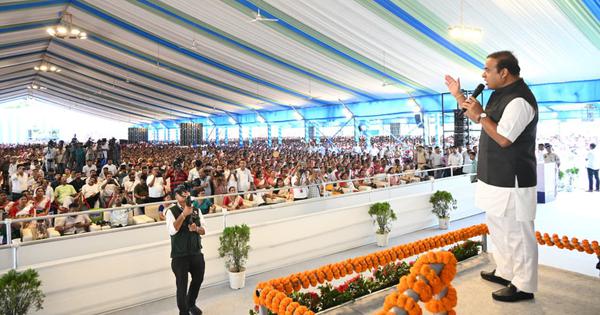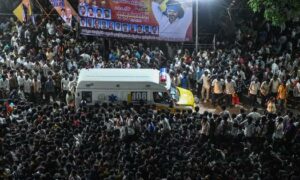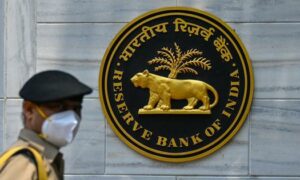
What India gained and lost in its military strikes against Pakistan in May might take a long time to establish. But this much is clear – the surge of nationalism after Operation Sindoor has licensed the state to turn the screws on freedom of speech.
Nowhere is this more evident than in Assam, where the police have shown striking singlemindedness in going after journalists, critics and minorities while flying the flag of nationalism.
On July 11, the Assam police registered a first information report against The Wire’s founding editor Siddharth Varadarajan, taking objection to a news report quoting India’s defence attaché in Indonesia. The official conceded at a seminar that India had lost fighter jets in the conflict against Pakistan – a claim that the Indian government has refused to confirm or deny, even in Parliament.
The Assam Police invoked Section 152 of the Bharatiya Nyaya Sanhita against the journalists, using a provision that replaced the older sedition law with arguably broader and more excessive features. However, on August 12, the Supreme Court granted Varadarajan protection from arrest.
The order should have chastened the Assam Police and convinced it to call off its drive to spot threats to India’s “sovereignty, unity and integrity” in factual news reports. Instead, it doubled down.
On the same day, the crime branch of the Guwahati Police sent a summons to Varadarajan and journalist Karan Thapar, asking them to appear in person in another complaint that invoked similar charges. Disturbingly, the summons carried few details about the alleged offence and the journalists’ attempts to get a copy of the first information report were repeatedly thwarted.
On Friday, the Supreme Court again granted interim protection to Varadarajan and Thapar.
The action against The Wire journalists is not unusual: it is part of a pattern where the Assam Police is zealously being deployed against critics of the Himanta Biswa Sarma government and Prime Minister Narendra Modi.
Recall how the state’s police officials landed up on the tarmac of Delhi airport in 2023 to arrest Congress leader Pawan Khera and travelled to Gujarat the previous year to arrest Congress MLA Jignesh Mevani.
This playbook has been perfected on critics closer home. Earlier this year, the Assam Police arrested Dilwar Hussain Mozumder, a journalist with the digital news outlet, The CrossCurrent, while he was reporting on allegations of a bank fraud. When he was granted bail, he was arrested in a second case.
Notably, The CrossCurrent and The Wire have collaborated on investigations that called into question the role of Sarma and his family in several alleged financial misdemeanours in the state.
While the Assam Police crackdown on journalists has made headlines and led to courts intervening on their behalf, others have not been lucky.
As Scroll has reported, 97 people were arrested in the state in the aftermath of the Pahalgam terror attack for statements made on social media. The Assam chief minister described this as an action against “anti-national and anti-Hindu culprits”.
Most of these arrests had gone under the radar until we investigated some of the cases.
Over 90% of those arrested were Muslim. Strikingly, in all but one of the cases we tracked down, the Assam Police had taken suo motu action. They had presumably trawled the web to find what they considered objectionable posts and initiated the complaints on their own – and liberally slapped on sedition charges.
In four of the cases we examined, social media posts that did not call for violence or espouse any extremist thoughts were met with terror charges.
A 19-year-old was arrested for an Instagram reel that said, “Pakistan is a normal country”. One PhD student was arrested for a post that condemned the killings of tourists in Kashmir.
Worryingly, though some of the accused got bail, it is still not known how many of the arrested are languishing in prison.
The polarising politics of citizenship and suspicion of “illegal Bangladeshis” that was first curated in Assam is now increasingly being mainstreamed in the rest of India. As it turns into an outpost of Hindutva under the Bharatiya Janata Party, the state’s disturbing experiments in silencing and shutting down dissent might show the way to the rest of the country.
Here is a summary of last week’s other top stories.
Who let the dogs out? Staying its earlier directions to the Delhi government and municipal corporations of Noida and Gurugram to capture all street dogs, the Supreme Court ordered that the animals be released in the same area from where they are picked up after being vaccinated and dewormed.
The court added that dogs displaying aggressive behaviour and those infected with rabies should not be released.
A three-judge bench also prohibited the public feeding of stray dogs, stating that dedicated feeding spaces must be created for this.
The court expanded the scope of the directives beyond the National Capital Region and said that its interim order will be applicable across the country until a national policy is created on the matter.
The bench cautioned that animal rights activists who obstruct the municipal authorities from capturing stray dogs would be held in contempt of court.
Tool to keep Opposition in check? Union Home Minister Amit Shah introduced three bills in the Lok Sabha that propose that the prime minister, chief ministers and other ministers be automatically removed if they continue to be under arrest for 30 days. This will apply in cases that entail punishment for five years or more.
The three bills are the Constitution 130th Amendment Bill, the Jammu and Kashmir Reorganization Amendment Bill and the Government of Union Territories Amendment Bill. As the first of these is a constitutional amendment, it will need to be passed by a two-thirds majority in both the Lok Sabha and the Rajya Sabha.
The three bills have been sent for scrutiny to a joint parliamentary committee, which has MPs from the ruling coalition and Opposition parties.
Opposition leaders described the bills as “draconian” and “destructive”, and expressed concern that they could be misused.
Revising the electoral roll. Voters excluded from Bihar’s draft electoral rolls can apply online for inclusion by submitting their Aadhaar cards or any of the 11 documents recognised by the Election Commission, the Supreme Court said. The court also directed political parties in Bihar to instruct their booth-level agents to assist voters with submitting the forms.
The bench was hearing a clutch of petitions challenging the voter roll revision in Bihar ahead of the Assembly polls, expected to take place in October or November.
The draft roll published on August 1 showed that 65 lakh names had been removed from the list. The list will be revised by September after the poll panel assesses objections and claims about the exclusion and inclusion of voters in the draft roll.
Also on Scroll last week
Follow the Scroll channel on WhatsApp for a curated selection of the news that matters throughout the day, and a round-up of major developments in India and around the world every evening. What you won’t get: spam.
And, if you haven’t already, sign up for our Daily Brief newsletter.
This article first appeared on Scroll.in
📰 Crime Today News is proudly sponsored by DRYFRUIT & CO – A Brand by eFabby Global LLC
Design & Developed by Yes Mom Hosting






